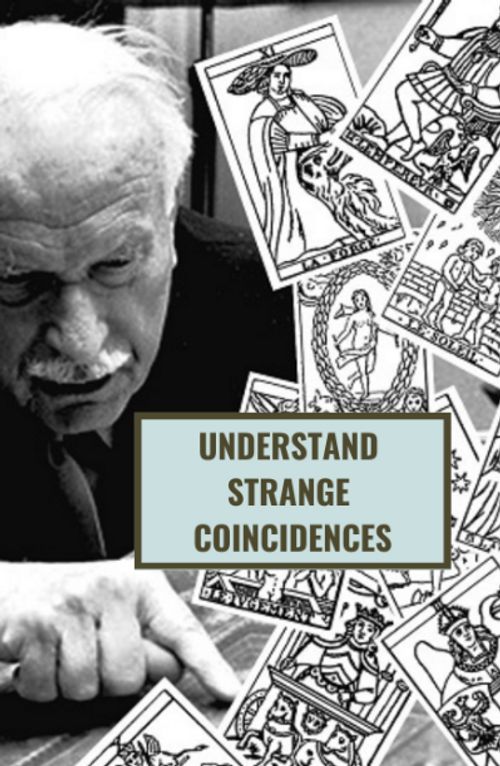Can "coincidences" be secret messages?
Jul 14, 2022 · 2 mins read
0
Share
Introduction. Carl Jung believed that coincidences can contain meaningful information. Sometimes, events across unconnected domains sync up and point at a common underlying theme. This is Jung's Synchronicity. Learn why coincidences hold important clues to your growth 👇
Save
Share
The concept of synchronicity states that there's a “a kind of meaningful cross-connection” between the physical and the mental world. The physical world communicates to us not just via sights, sounds, and sensations - but also via dreams, symbols, and coincidences.
Save
Share
On April 1st 1949, Jung had fish for lunch. Later a patient he hadn't "seen for months" came to show him fish pictures she'd painted. The next day another patient told him about a dream where a large fish "swam straight to her." Jung was studying the fish symbol this week.
Save
Share
A young lady with an "excellent education" came to Jung. 2 other therapists had failed previously and Jung was failing too. She had "sealed herself" in a "highly polished rationalism." One night she dreamt she was gifted a "golden scarab—a costly piece of jewelry." She told Jung.
Save
Share
At that very moment, Jung heard something "gently tapping on the window." It was a "scarabaeid beetle" - shaped like the woman's scarab, its skin tinted golden. Jung caught it and gave it to her: "Here is your scarab." This "broke the ice of her intellectual resistance."
Save
Share
In Egyptian myths, a scarab is a classic "rebirth symbol." When the Sun-God dies, he changes into a scarab before his re-birth. The scarab's appearance was a synchronistic coincidence: it helped Jung's patient step out of her rationalist trap and embrace a rebirth via therapy.
Save
Share
In an ancient Chinese system, coin tosses are used to arrive at a random number. A corresponding passage is picked from I Ching, a classic Chinese text. This practice aims to find out the synchronistic dialogue between "the psychic state of the questioner" and God/Nature's will.
Save
Share
M.-L. von Franz: "Certain types of event like to cluster together at certain times. Chinese theories of medicine, philosophy, & even building are based on a science of meaningful coincidences. Chinese texts did not ask what causes what, but rather what likes to occur with what."
Save
Share
The world depends as much on things invisible, inaudible, and untestable as it does on things verifiable. Jung: “We put thirty spokes together and call it a wheel; But it is on the space where there is nothing that the utility of the wheel depends."
Save
Share
Bottom line. Coincidences are hints. Via dreams or odd overlaps, our mind gets tuned into, and gets messages from, the "archetypal foundation" of the collective unconscious. "Synchronistic events" happen at "crucial phases" to draw our attention to what really matters.
Save
Share
0
